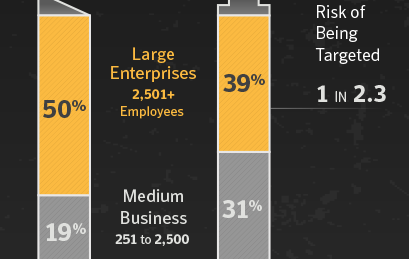
Protecting Information in the Canadian Cloud

 Symantec named 2013 the year of the mega data breach.
Symantec named 2013 the year of the mega data breach.
Pretty fitting, considering the many corporations that were hit with cyber attacks, which compromised company secrets and customer data. However, smaller companies weren’t left alone either. Many fell victim to aggressive spear phishing attacks and ransomware. Despite the increasing number attacks every year, and the costly repercussions, too many organizations don’t have a solid IT security strategy in place.
For many, it’s a question of budget. They would rather devote more resources to core business functions, and not have to worry about IT concerns and data protection. In an effort to help alleviate some of this stress, many companies are looking to switch over to cloud computing. This approach allows companies to outsource their storage concerns and security measures. However, while some see this as the perfect solution, others are still hesitant. For them, trusting external sources to manage company information can be a little unsettling.
Now, that isn’t to say cloud-based solutions aren’t safe, it’s just that relying on third-party vendors may be risky. Even the best providers using the very latest in encryption and security technology will sometimes fail. If you mistakenly choose an inexperienced vendor, you risk having all your important information damaged, lost or even stolen.
Needless to say, it’s vital to go with experienced providers in order to limit security risks and have the best technology available. That’s what pushes many companies to consider solutions from major tech giants like Microsoft, Amazon or Google. But while all of these providers offer great solutions, companies need to pay attention to more than just brand names.
One often overlooked aspect of picking a provider is where the actual servers are located. You may think that’s odd, but it’s important to remember that servers are subject to the laws of the country where they’re housed. This doesn’t seem to be a problem until you consider a few American laws that relate directly to access of private business data, like the Patriot Act. (For those unfamiliar with the Patriot Act, it was a piece of legislation that followed the tragic September 11, 2001 attacks.) In an effort to improve national security, the bill, among other things, permits law enforcement and government agencies to search telephone, e-mail, financial and business records.
That means there are over 10,000 U.S. agencies that could have access to your data without a warrant. In an era of data breaches, even with the strictest security systems, having people rummage through your information without notice is disconcerting.
Not surprisingly, Canadian cloud vendors are subject to these types of laws. This should be a strong motivator for Canadian companies to keep their information on home soil. However, even in the Great White North, there are still differences between good providers and not-so-good providers. Here’s a very short list of some reputable Canadian companies offering cloud solutions that may be worth considering:
Rogers Communications
Rogers, the massive Canadian communications and media company, offers cloud-based solutions under its Rogers Data Centres brand.
Rogers offers public, private and hybrid cloud options, with a full suite of offerings like CloudServer and CloudFirewall. Rogers also offers a dispersed cloud infrastructure that leads to exceptional redundancy.
Bell Canada
It’s hard to mention Rogers without also mentioning its largest Canadian competitor. Bell Canada also offers a number of reliable cloud solutions.
Bell Could Solutions emphasizes infrastructure-as-a-service, allowing customers to scale up and down to meet their changing needs. Bell also claims Canada’s largest data and wireless network, which reinforces their proven performance, security and reliability.
CloudPockets
CloudPockets, owned by the tech consulting firm Foreverwarm, is based out of British Columbia. CloudPockets, founded in 2007, prides itself on years of experience. They also promise a more involved approach, meaning clients get to speak and work with IT professionals, as opposed to waiting on the phone with an automated service before finally reaching a real person.
Pathway Communications
In 2014, Pathway was awarded the Managed Service Provider – Consumers Choice Award. Serving the Greater Toronto Area, Pathway offers a number of business solutions, including server colocation and data storage. They were also the first to construct Canada’s first Tier III Certified Data Centre.











